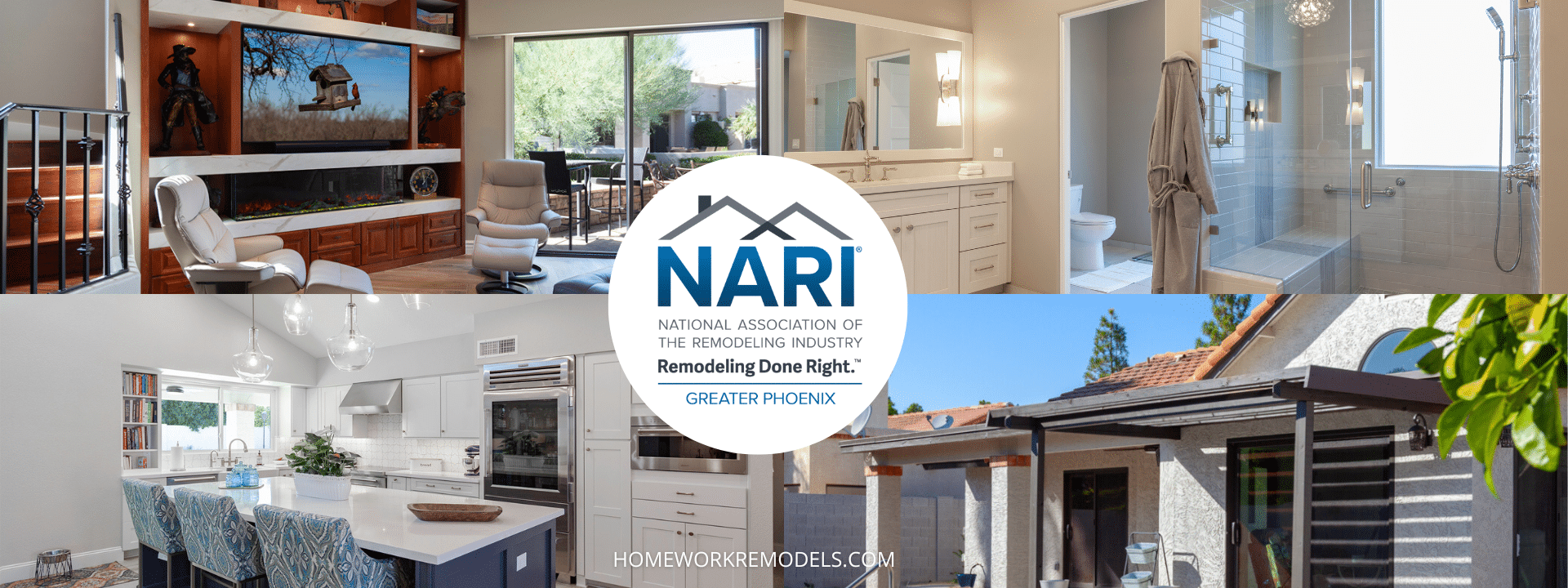NARI Universal Design Certified Professional (UDCP)
What Is a Universal Design Certified Professional?
A Universal Design Certified Professional (UDCP) is a remodeler credentialed by NARI for mastery of inclusive, barrier-free residential design. UDCP pros are trained in client needs assessments, universal design applications, construction techniques, plumbing/electrical considerations, and the differences between building codes and ADA standards. Candidates must meet eligibility requirements and pass a comprehensive proctored exam. (nari.org)
Key facts from NARI:
-
- Eligibility includes a minimum of two years continuous remodeling experience plus universal design education (or completion of NARI’s UDCP prep course).
- Certification is earned by passing a comprehensive, 90-question examination under supervision.
- To maintain the credential, UDCPs complete 10 hours of continuing education per renewal period.
In short: UDCP isn’t about adding grab bars at the end of a project—it’s about planning from the start so homes are safer, easier to use, and still look amazing.
Homework Remodels – Design-Build Remodeling for Every Age & Ability
Our leadership team holds NARI credentials including Universal Design Certified Professional. That means your project benefits from a process that anticipates daily life—hands-free entries, generous clearances, smarter lighting, and materials that feel refined rather than “institutional.”
Because we’re a local design-build firm, we align floor plans, finishes, structure, HVAC, and electrical from day one. Universal design choices are integrated—not tacked on—so the final result looks cohesive and lives comfortably in the Sonoran Desert climate.
Why Hiring a UDCP Benefits You
-
- Safer daily living: Zero-threshold entries, curbless showers, and better lighting reduce fall risks without sacrificing style.
- Long-term independence: Future-proof kitchens, baths, and circulation help you host friends, age in place, or welcome multi-generational family.
- Beautiful, not clinical: Flush transitions, floating vanities, frameless glass, lever hardware, and integrated lighting achieve a modern aesthetic.
- Fewer surprises: A UDCP designs with codes, ADA differences, and construction realities in mind—avoiding late-stage rework.
- Protected investment: Inclusive features widen buyer appeal while improving day-to-day livability.
Universal Design vs. Accessibility vs. Aging-in-Place
-
- Universal Design: Creates spaces that work well for everyone—children, guests, and people with temporary or permanent mobility, vision, or strength differences.
- Accessibility (ADA): A legal framework focused on public accommodations. Homes aren’t bound to ADA, but a UDCP understands where ADA guidance can inform smart choices.
- Aging-in-Place: A life-stage goal. Universal design implements the details that actually make it possible.
Where We Apply Universal Design—Without Compromising Style
Kitchens:
-
- 42″–48″ circulation paths; at least one 34″ high work surface; pull-out pantries; drawer bases; D-pulls; side-swing or wall oven; induction for safety.
- Task + ambient lighting; controls positioned for seated or standing users.
Bathrooms:
-
- Curbless showers with linear drains; blocking for future grab bars; handheld + rain heads; thermostatic valves; slip-resistant large-format tile; comfort-height toilets; floating vanities for knee/foot clearance.
Entries & Circulation:
-
- Zero-step entries, 36″ doors, lever handles, low-profile thresholds, widened hallways, continuous flooring, and thoughtful sightlines for wheelchairs or strollers.
Living & Bedrooms:
-
- Reachable switches/outlets, wider door swings or pocket doors, smart lighting scenes, and built-ins sized for easy access.
Outdoors:
-
- Shade structures, smooth transitions to patios, slip-resistant hardscape, and wayfinding lighting—tailored to desert heat and dust.
Our UDCP-Led Design-Build Process
-
- Discovery & Needs Assessment: We map daily routines (morning/evening flows, guests, hobbies) and mobility considerations, then measure existing conditions.
- Concepts & Budgeting: Multiple layout options test clearances, door swings, and appliance ergonomics—paired with realistic cost ranges.
- Selections & Detailing: Plumbing/electrical plans support curbless showers, multi-height counters, lighting layers, and control placement. (UDCP exam domains emphasize those systems and code/ADA differences. )
- Permitting & Scheduling: We coordinate drawings, engineering, and city submittals for a smooth review.
- Construction, Cleanly Managed: Dust control, respectful crews, and craftsmanship that stands up to close inspection.
- Orientation & Support: We document features, demonstrate operation, and remain available for post-project care.
Recognition & Professional Standards
NARI certifications are earned via rigorous screening, testing, and continuing education—recognized across the industry for professional conduct and technical depth.
Related Homework Remodels Certifications
Together, these credentials reflect our commitment to excellence, safety, and inclusive design.
Helpful Links
► Certified Remodeling Expertise You Can Trust
► Why Choose Homework Remodels
► What to Expect at Your First Consultation
► Schedule Your Free Consultation
► Read Client Reviews
Let’s Us Help You With Your Remodel!
We realize that remodeling can be expensive, and you deserve to work with a quality company with a professionally educated and certified staff for your home improvement investment.
We welcome your questions about how these NARI certifications will improve your remodeling experience.
For more info contact us at 602-478-5102 or email steve@homeworkremodels.com.
AWARD WINNING HOME AND COMMERCIAL RENOVATION SERVICES
Got a project in mind? Let’s talk! We’re excited to help you make it happen.

